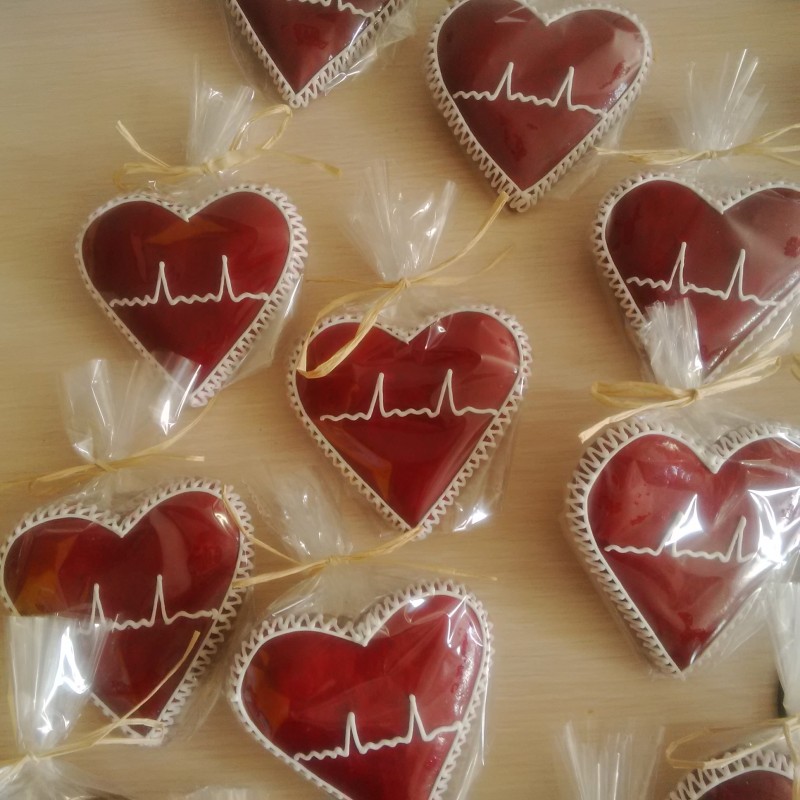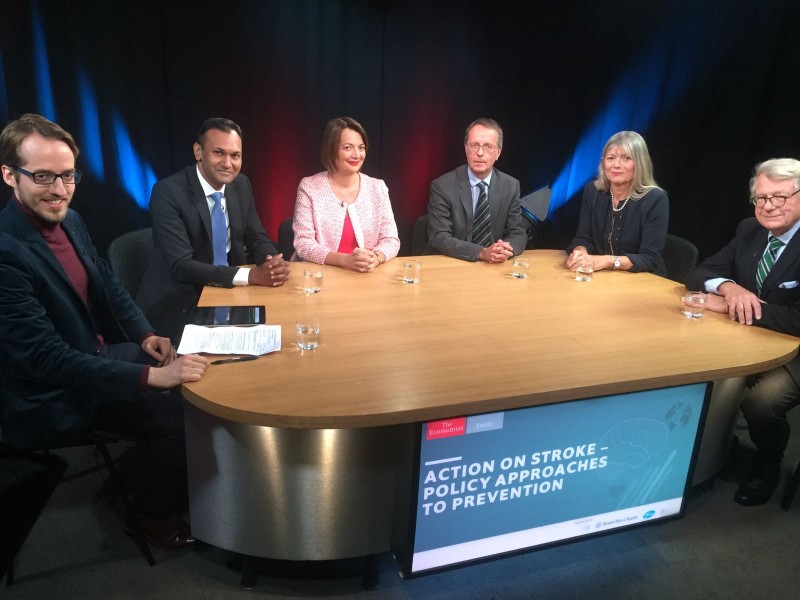
Sep 28, 2017
New research released on 21st September 2017 by The Economist Intelligence Unit (EIU), a division of The Economist and a leader in global business intelligence, revealed that on average, more than 75 percent of people aged 65 and older worldwide are not being screened for atrial fibrillation (AF) and other common stroke risk factors during routine primary care examinations, even though this population is at high risk for stroke. The EIU “Preventing Stroke: Uneven Progress” report, sponsored by The Bristol-Myers Squibb-Pfizer Alliance, conducted an analysis of 20 countries and found that efforts to screen people for stroke risk factors including AF and hypertension varied widely, even in countries with established health care and developed economies.
(more…)

Sep 26, 2017
It is well-known in the medical field that the pig brain shares certain physiological and anatomical similarities with the human brain. So similar are the two that researchers at the University of Georgia’s Regenerative Bioscience Center have developed the first U.S. pig model for stroke treatments, which will provide essential preclinical data and speed the drug discovery process. (more…)

Sep 24, 2017
Two of the most influential bodies in Europe concerning stroke care are the European Stroke Organisation known as ESO, and the Stroke Alliance for Europe, commonly known as SAFE. And these two have joined forces earlier this year to support awareness, prevention and advocacy for improved stroke research and treatments. Stroke patients and those looking after them need to know that they have the safety, choice and empowerment as the guiding principles of care.
Please watch below the interview with Dr. Valeria Caso, neurologist from the University of Perugia, Italy, the President of ESO and John Barrick, the patient advocate and President of the Board of SAFE, the only European-wide alliance of stroke support organisations.
The full-length video is available if you click on the photo. (more…)

Sep 24, 2017
While immune cells called neutrophils are known to act as infantry in the body’s war on germs, a National Institutes of Health-funded study suggests they can act as medics as well. By studying rodents, researchers showed that instead of attacking germs, some neutrophils may help heal the brain after an intracerebral hemorrhage, a form of stroke caused by ruptured blood vessels. The study suggests that two neutrophil-related proteins may play critical roles in protecting the brain from stroke-induced damage and could be used as treatments for intracerebral hemorrhage.
“Intracerebral hemorrhage is a damaging and often fatal form of stroke for which there are no effective medicines,” said Jaroslaw Aronowski, M.D., Ph.D., professor, department of neurology, at the University of Texas Health Science Center at Houston, and senior author of the study published in Nature Communications. “Our results are a hopeful first step towards developing a treatment for this devastating form of stroke.” (more…)

Sep 20, 2017
The Economist Events and sponsor The Bristol-Myers Squibb and Pfizer Alliance hosted a webinar “Action on Stroke”, on September 21st 10:00 am EST/3:00 pm GMT, to address policy approaches to stroke prevention.
With heart disease and stroke as some of the leading causes of death worldwide, understanding the opportunity for policy to facilitate prevention is paramount.
– As there is a predicted increase in stroke incidence until 2030 in Europe and other parts of the world (Burden of Stroke Report and Global Burden of Disease Study) policy efforts on stroke prevention have to be increased (and SAFE as the patient voice in Europe is advocating for a better stroke prevention on the European level). – said Dr Markus Wagner, SAFE Vice President and one of the panelists at Action on Stroke – Live Webinar 2017 which happened on Wednesday, September 21st in London.
Please watch the entire webinar below:
(more…)

Sep 13, 2017
After a stroke, many people are unable to successfully perform basic hand movements in everyday life. The reason are symptoms of hemiparesis resulting from damage to the brain. These very frequently affect fine motor skills. A team from the Technical University of Munich (TUM) is now paving the way to better diagnosis and more targeted therapy. (more…)

Sep 13, 2017
UNSW researchers have identified a promising new avenue to explore in the search for stroke treatments, after translating findings from Alzheimer’s disease.
The study published in Nature Communications finds that mice deficient in tau, a protein within brain cells (neurons), are significantly protected from excitotoxic brain damage after experimental stroke. (more…)

Sep 13, 2017
A healthy lifestyle benefits your brain as much as the rest of your body — and may lessen the risk of cognitive decline (a loss of the ability to think well) as you age, according to a new advisory from the American Heart Association/American Stroke Association.
Both the heart and brain need adequate blood flow, but in many people, blood vessels slowly become narrowed or blocked over the course of their life, a disease process known as atherosclerosis, the cause of many heart attacks and strokes. Many risk factors for atherosclerosis can be modified by following a healthy diet, getting enough physical activity, avoiding tobacco products and other strategies. (more…)

Sep 8, 2017
This September Irish Heart’s ‘Heart Month’ campaign will focus on Stroke Prevention.
Over 2,000 people under 65 have a stroke each year but the good news is that by making small changes to your lifestyle today you can reduce your chances of having a stroke now and in the future.
Make time for a blood pressure check now and find out what you need to do to avoid stroke at www.irishheart.ie (more…)

Sep 8, 2017
Inflammatory hypothesis confirmed: Landmark randomized clinical trial of high-risk patients finds that a drug targeting inflammation reduced risk of major adverse cardiovascular events.
Investigators from Brigham and Women’s Hospital today announced results of a clinical trial culminating from 25 years of cardiovascular research work. At the European Society of Cardiology meeting and in a paper published simultaneously in the New England Journal of Medicine, Paul M. Ridker, MD, director of the Center for Cardiovascular Disease Prevention at BWH, and colleagues presented findings from CANTOS (Canakinumab Anti-inflammatory Thrombosis Outcomes Study), a trial designed to test whether reducing inflammation among people who have had a prior heart attack can reduce risk of another cardiovascular event in the future. The team reports a significant reduction in risk of recurrent heart attacks, strokes and cardiovascular death among participants who received a targeted anti-inflammatory drug that lowered inflammation but had no effects on cholesterol. (more…)







